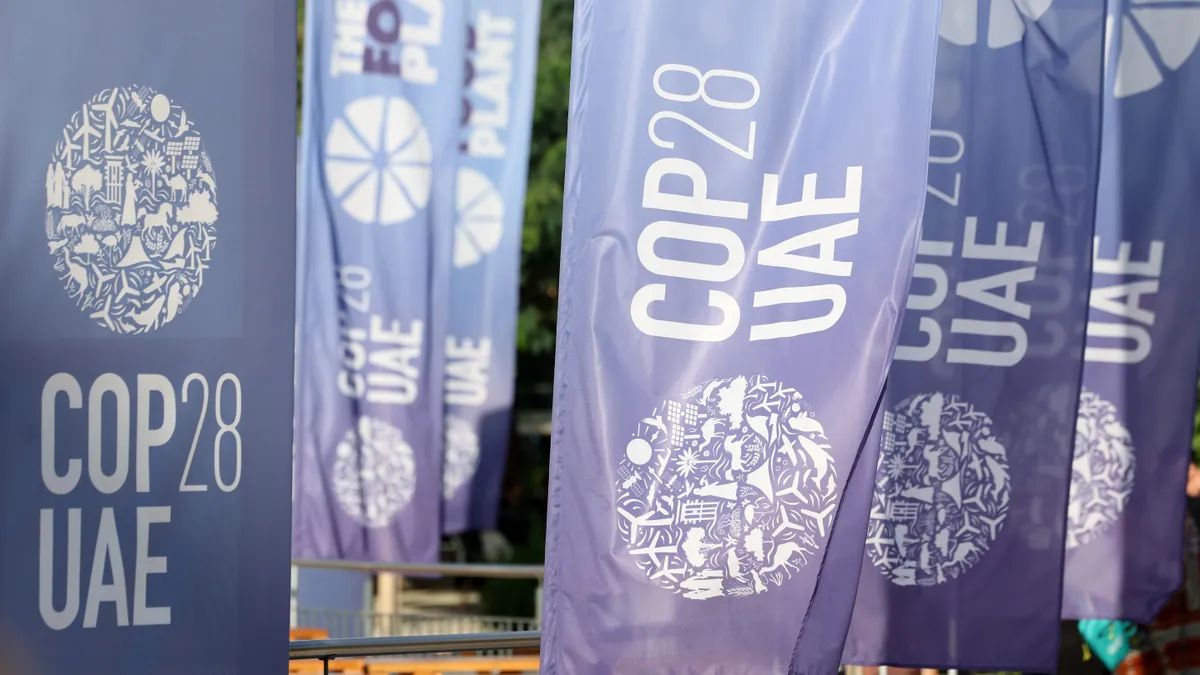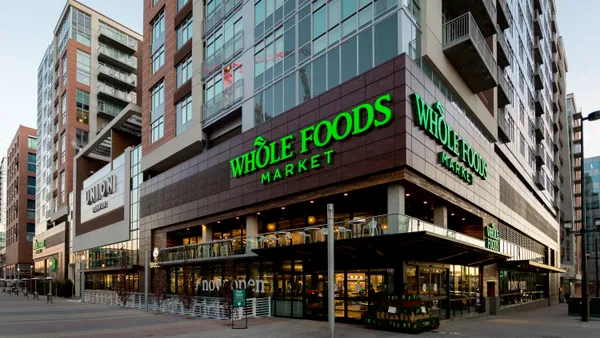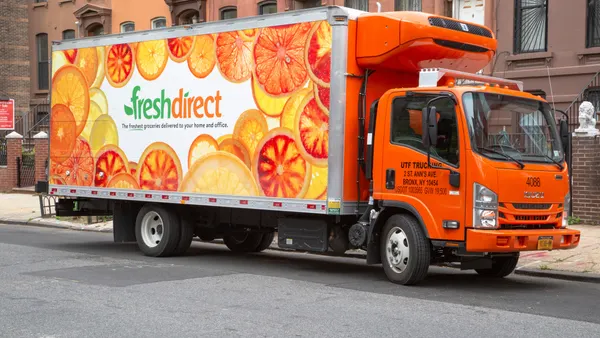More than 130 countries on Friday signed a declaration to accelerate action on transforming agriculture and food systems, agreeing to scale innovation and financing for soil health and other measures to combat climate change.
The agreement, announced on the second day of the United Nations climate summit in Dubai, included 134 nations encompassing some of the world's largest food producers. Signatories make up 76% of food-based greenhouse gasses and produce 70% of food globally, according to COP28 leadership.
“There is no path to achieving the goals of the Paris Climate Agreement and keeping 1.5C within reach, that does not urgently address the interactions between food systems, agriculture, and climate,” Mariam bint Mohammed Almheiri, UAE Minister of Climate Change and Environment and COP28 Food Systems Lead, said in a statement.
As part of the declaration, countries have agreed to work together to scale up adaptation and resilience efforts for farmers, in addition to taking more action to transform production practices through addressing soil health, food waste and biodiversity loss. To meet those goals, signatories agreed to accelerate innovation and increase financing for agriculture-based climate solutions.
Pledging countries make up some of the largest food producers and emitters, including the U.S., Brazil and China. Notably absent from the list was India, which said prior to the start of COP28 it would not agree to any agriculture climate actions that could compromise food security. Prime Minister Narendra Modi said last week the country is looking to launch a voluntary green credit initiative billed as an alternative to carbon credits.
Food systems are bubbling up to the center of global climate negotiations at COP28, with governments, private businesses and nonprofits committing billions of dollars to lower agriculture-based emissions. COP28 host country United Arab Emirates, for example, announced $2.5 billion to support food systems innovation through a partnership with the Bill and Melinda Gates Foundation.
Farm groups across the globe have pushed for countries to ensure that climate adaptation and mitigation plans don't impact food security. The National Farm Federation in Australia and other organizations stressed the need for governments to work directly with farm stakeholders to drive change.
"The Declaration will only achieve its objectives if farmers are at the decision-making table," according to a statement from the World Farmers' Organisation. "We invite governments to focus on working with us to co-design policies that empower and enable farmers to unlock farmer-driven climate and food security solutions and leads to food systems that are fair, inclusive and climate-resilient.”















